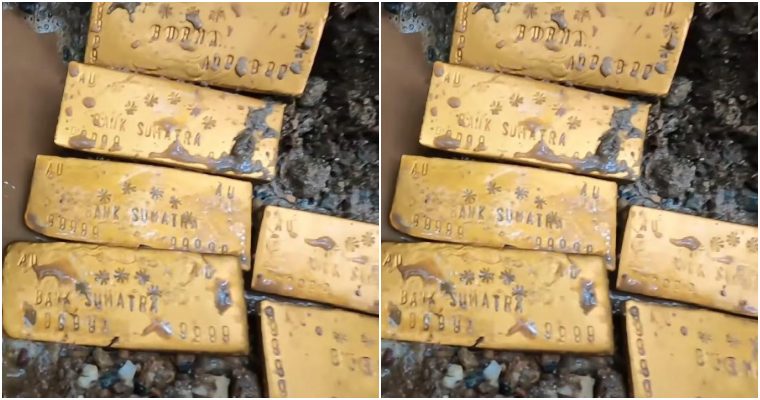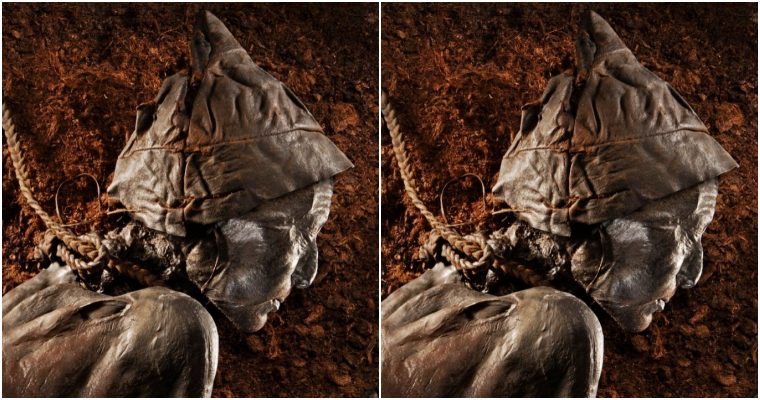Fossils shaped like Quidditchball are only a few of the many discoveries made by amateur archeologist Aaron Smith.
On the cliffs of Whitby, Yorkshire, the medical student found various fossil items from the Jurassic period. Perhaps the most spectacular is a 185 million-year-old fossil encased by what looks like a ‘golden canon’ ball.
It is technically a rock that is coated in iron pyrite, also known as ‘fools gold’, and if you shine this material, just like Smith did, then it turns shiny and gold.
The phenomenal piece of history is thought to be 185 million-years-old and was found on Sandsend Beach. Mr. Smith, 23, is a seasoned fossil collector and continues to go and explore the seaside in hope of finding similar treasures.
He said: “In order to find fossils, pretty much anywhere in the world, you just need to put in a lot of dedication!
 Smith cut the sphere open to reveal the prehistoric insides
Smith cut the sphere open to reveal the prehistoric insides The fossils inside are of cleviceras
The fossils inside are of cleviceras
“The majority of the time there is nothing really to be found but every now and again, if you’re lucky enough, and something has appeared due to a storm, for example, then you might find a rock with a fossil inside it.
“When you find a fossil, then the long intricate process begins of carefully removing the stone to expose the fossil, this can take hundreds of hours in many cases.
“It’s very exciting discovering the fossils. It makes it all worthwhile after spending months of searching.”
 Aaron Smith enjoys fossil hunting in his free time
Aaron Smith enjoys fossil hunting in his free time
When the medical student opened up one of his freshly shined pieces of iron pyrite he found spiral-shaped cleviceras fossils. Cleviceras is an extinct type of cephalopod creature. The best-known cephalopods today are probably squids and octopuses.
The golden-snitch-like spheres with a limestone core are actually common along the Yorkshire coastline and can be found amongst the stones and shales.
Mr. Smith has previously posted a video of the golden-snitch fossil online and captioned it: “Here’s a video of us opening one of our huge Cannon Ball fossils.
“The limestone nodule is coated in Iron Pyrite, meaning we can polish it to become Golden, seen in our previous videos.
“It still impresses me that these 185 Million-Year-Old fossils are along our beautiful Yorkshire Coastline waiting to be found.”
Source: archaeology-world.com








